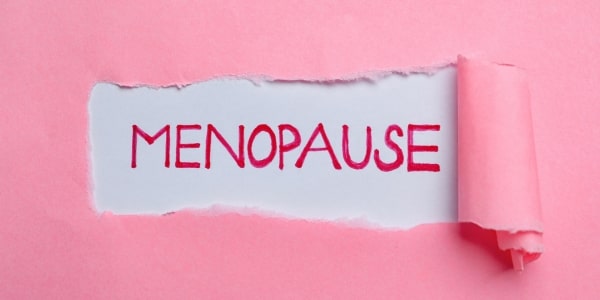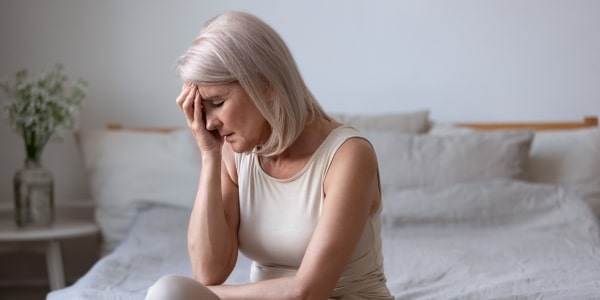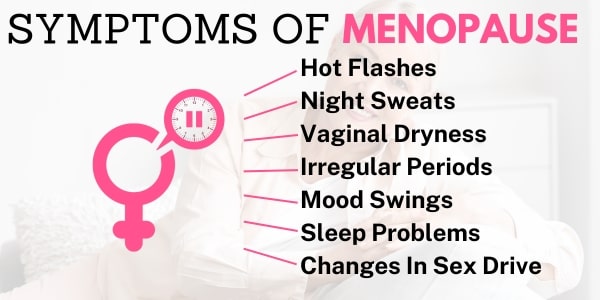Unlocking the Mysteries of Womanhood: What Age do Women Go Through Menopause?
Discover the fascinating journey that every woman embarks on at a certain stage of life. Join us as we delve into the enigmatic world of menopause, revealing its timing, symptoms, and impacts on women’s physical and emotional well-being. Get ready to unravel this captivating chapter in a woman’s life!
Learn how to manage your symptoms from the menopause doctor at Norwich Private GP Services.

Menopause Definition Demystified – In Plain English
Menopause is a natural biological process that marks the end of a woman’s menstrual cycle. It is defined as the permanent cessation of menstruation, typically occurring between the ages of 45 and 55. This transition usually takes place over a period of several years and is characterized by hormonal changes in the body.
During menopause, the ovaries stop producing estrogen and progesterone, which are responsible for regulating menstruation and fertility. As a result, women may experience a variety of physical and emotional symptoms such as hot flashes, mood swings, vaginal dryness, sleep disturbances, and more.
The importance of understanding menopause cannot be overstated. It is an inevitable phase in every woman’s life that can have significant impacts on her physical health, mental well-being, relationships, and overall quality of life.
In this section of our blog article “What age do women go through menopause”, we will delve deeper into the definition and importance of menopause to help you gain a better understanding of this natural process.
Definition of Menopause
As mentioned earlier, menopause occurs when a woman has not had her period for 12 consecutive months. Regardless of at what age do women go through menopause, the average age for menopause in women is around 51 years old; however, it can happen earlier or later depending on various factors like genetics.
There are three stages to menopause – perimenopause (the transitional stage leading up to menopause), menopause (when periods have stopped for 12 months) and post menopause.
The Average Age of Menopause in Women
Menopause is a natural and inevitable phase in a woman’s life, marking the end of her reproductive years. It is defined as the permanent cessation of menstruation and fertility, and is typically diagnosed after 12 consecutive months without a menstrual period.
While menopause can occur at any age, the average age for women to go through menopause is around 51 years old. However, it is important to note that this number may vary from woman to woman and can be influenced by various factors such as genetics, lifestyle choices, and overall health.
The process leading up to menopause, known as perimenopause, usually begins in a woman’s late 40s or early 50s. During this time, hormone levels begin to fluctuate and decline, resulting in changes in the menstrual cycle. This can cause irregular periods, heavier or lighter bleeding, or skipped periods altogether.
As women approach their late 40s and early 50s, they may start experiencing common symptoms of menopause such as hot flashes, night sweats, mood swings, vaginal dryness, and decreased libido. These symptoms are due to the decrease in estrogen production by the ovaries during this time.
However, it is important to note that every woman’s experience with perimenopause and menopause is unique. Some women may go through these stages without any noticeable symptoms at all while others may experience more severe symptoms that greatly impact their daily lives.
It is also worth mentioning that there are certain factors that can influence onset of the menopause.

Factors Affecting the Age of Menopause: Genetics, Lifestyle, and Health Conditions
Menopause is a natural process that marks the end of a woman’s reproductive years. It typically occurs between the ages of 45 and 55, with the average age being 51. However, there are various factors that can affect the age at which a woman goes through menopause. These factors include genetics, lifestyle choices, and underlying health conditions.
Genetics play a significant role in determining the age at which a woman will go through menopause. Studies have shown that there is a strong familial pattern when it comes to menopausal age. Women whose mothers and sisters experienced early or late menopause are more likely to go through menopause at a similar age. This suggests that genetic predisposition plays an essential role in determining the timing of menopause.
Apart from genetics, lifestyle choices also play a crucial part in influencing the age of menopause. Smoking has been linked to early onset of menopause, with studies showing that women who smoke are likely to experience menopause one to two years earlier than non-smokers. Additionally, excessive alcohol consumption has also been linked to early menopause.
On the other hand, maintaining a healthy weight and engaging in regular physical activity may delay menopause. Women who are overweight or obese tend to have an earlier onset of menopause compared to those with normal weight. This is because excess body fat produces estrogen-like hormones that can interfere with hormonal balance and lead to irregular periods and ultimately an earlier onset of menopause.

Symptoms of Menopause: Hot Flashes, Mood Swings, and More
Menopause is a natural biological process that marks the end of a woman’s reproductive years. It typically occurs between the ages of 45 and 55, with an average age of 51 in the UK- according to the NHS. However, every woman’s experience with menopause is unique and can occur earlier or later than this range.
As women approach menopause, their hormone levels begin to fluctuate, leading to a variety of physical and emotional symptoms. These symptoms can vary in severity and duration for each individual but are generally manageable through lifestyle changes and medical treatments.
| SYMPTOMS OF MENOPAUSE Hot flashes: Hot flashes are sudden and intense sensations of heat, often accompanied by sweating, redness of the skin, and an increased heart rate. They can last for a few seconds or minutes and can occur several times a day or night. Night sweats: Night sweats are hot flashes that occur at night, often disrupting sleep. Vaginal dryness: Vaginal dryness is a decrease in the amount of natural lubrication in the vagina. It can make sex uncomfortable and can also increase the risk of urinary tract infections. Irregular periods: During perimenopause, the years leading up to menopause, women may experience irregular periods, including periods that are longer or shorter than usual, or periods that skip altogether. Mood swings: Menopause can cause mood swings, irritability, and anxiety. Sleep problems: Sleep problems are common during menopause, and can be caused by hot flashes, night sweats, and anxiety. Changes in sex drive: Some women experience a decrease in sex drive during menopause. |
One of the most well-known symptoms of menopause is hot flashes or hot flushes. This sudden feeling of intense heat can cause redness, sweating, and sometimes chills. Hot flashes can last anywhere from a few seconds to several minutes and may be accompanied by heart palpitations or anxiety.
Mood swings are another common symptom of menopause due to hormonal changes affecting neurotransmitters in the brain. These mood swings can range from feeling irritable or anxious to experiencing more severe emotions such as depression or anger. Women may also experience difficulty concentrating or memory lapses during this time.
Other physical symptoms that women may experience during menopause include irregular periods, vaginal dryness, and decreased libido. As estrogen levels decrease, periods may become shorter or longer than usual until they eventually stop altogether. Vaginal dryness can lead to discomfort during intercourse, while decreased libido may result from hormonal changes as well as psychological factors related to aging.
How Norwich Private GP Can Help Treat Menopause Symptoms
As women approach their late 40s to early 50s, they may start experiencing symptoms of menopause. Menopause is a natural process that marks the end of a woman’s reproductive years and is characterized by a decrease in estrogen levels. This hormonal shift can cause various physical and emotional changes in women, which can significantly impact their quality of life.
It is important to emphasize that while menopause is a natural process, it is desirable for women to get appropriate help and support to deal with the more challenging aspects of menopause from a doctor who not only has an understanding of the physiological processes at play, but has sufficient empathy to appreciate the profound impact that the menopause can have.
1. Hormone Replacement Therapy (HRT)
Hormone replacement therapy is one of the most common treatments for managing menopausal symptoms. It involves taking estrogen and progesterone hormones to replace those that the body no longer produces after menopause. HRT can effectively reduce hot flashes, night sweats, vaginal dryness, and other physical symptoms associated with declining estrogen levels.
At Norwich Private GP, we will be able to assess your suitability for HRT based on your health history and current condition. We offer different forms of HRT such as oral tablets, patches, gels for the skin and vaginal creams and inserts.
2. Alternative Therapies
Aside from traditional HRT methods, Norwich Private GP advice on alternative therapies to help alleviate menopausal symptoms. Herbal supplements or acupuncture treatments have been shown to improve sleep quality, reduce hot flashes and night sweats.
Natural HRT For Women’s Health
Hormone Replacement Therapy (HRT) is a commonly used treatment for menopause symptoms. It involves taking medications that contain hormones, such as estrogen and progesterone, to replace the declining levels in the body during menopause.
There are two types of HRT: estrogen-only therapy and combined therapy with both estrogen and progesterone. Estrogen-only therapy is typically recommended for women who have undergone a hysterectomy (removal of the uterus). Combined therapy is usually prescribed for women who still have their uterus, as it helps protect against endometrial cancer.
The use of HRT has been a controversial topic in recent years due to conflicting studies on its safety and potential health risks. It is important to discuss the increased risk of breast cancer in women on HRT. The suitability of a woman to take HRT from the point of view of breast cancer risk and the susceptibility to blood clots, stroke, and heart disease should be carefully evaluated. HRT can be an effective option for managing menopause symptoms when used carefully under the guidance of a healthcare provider.
Best Supplements For Menopause
Nutrition is an essential aspect of menopause that is often overlooked. As your body goes through significant changes during this phase, it is crucial to provide it with the necessary nutrients and vitamins to support its functioning. This is where nutritional supplements come in.
1. Importance of Nutritional Supplements during Menopause:
During menopause, your estrogen levels decline, affecting various bodily functions such as bone health and metabolism. This makes it important to supplement your diet with key vitamins and minerals that may be lacking due to hormonal changes or dietary habits.
2. Calcium and Vitamin D:
Estrogen plays a vital role in maintaining bone density. With its decline, women are at a higher risk of developing osteoporosis during menopause. Studies have shown that calcium and vitamin D supplementation can help maintain bone strength and reduce the risk of fractures in postmenopausal women.
3. Vitamin B Complex:
The B vitamins are essential for energy production, nerve function, and mood regulation – all of which can be affected during menopause. Vitamin B6 has been found to ease symptoms like hot flashes while vitamin B12 helps with cognitive issues commonly experienced by women going through menopause.
4.Vitamin E:
Vitamin E is known for its antioxidant properties that protect cells from damage caused by free radicals. It also plays a role in reducing inflammation and promoting heart health – both important factors during menopause when the risk of cardiovascular disease increases.
5.Iron:
Iron deficiency anemia is a prevailing health concern frequently observed among women experiencing perimenopause, marking the transitional phase before menopause. Perimenopause, characterized by fluctuating hormone levels and irregular menstrual cycles, creates physiological changes that render women more vulnerable to developing iron deficiencies. The decrease in estrogen production during this time can negatively impact the body’s ability to effectively absorb and utilize dietary iron. With diminished estrogen levels impacting bone health as well, women going through perimenopause must pay close attention to their iron intake in order to maintain optimal functioning of vital bodily functions such as oxygen transportation and energy metabolism.
Consequently, healthcare professionals should be attentive in educating women about the importance of monitoring their iron status during perimenopause to identify potential anemia symptoms early on and promptly address them with appropriate interventions.
Lifestyle Changes and Alternative Therapies
As women approach menopause, they may experience a variety of symptoms that can significantly impact their daily lives. While many turn to hormone replacement therapy or other medical treatments to manage these symptoms, others may prefer to explore lifestyle changes and alternative therapies before considering medication.
One of the most important lifestyle changes for women going through menopause is maintaining a healthy diet. This includes consuming plenty of fruits and vegetables, whole grains, lean proteins, and healthy fats while limiting processed foods and sugar. Certain foods such as soy products, flaxseeds, and legumes have also been found to contain phytoestrogens which can help alleviate hot flashes and other menopausal symptoms.
Regular exercise is also crucial during this time as it can improve mood, reduce stress and anxiety, promote better sleep, strengthen bones, and maintain a healthy weight. Low-impact exercises like yoga or swimming are highly recommended for women going through menopause as they are gentle on the joints while still providing numerous health benefits.
In addition to diet and exercise, managing stress levels is essential during menopause. Hormonal fluctuations can often lead to increased stress levels which can worsen symptoms such as hot flashes and mood swings. Adopting relaxation techniques such as meditation or deep breathing exercises can help reduce stress levels.
Alternative therapies have also gained popularity among women seeking natural remedies for menopausal symptoms. Acupuncture has been shown to help regulate hormonal imbalances in some women experiencing menopause transition.
Coping with Menopause: 3 Self Care Tips To Manage Menopause At Home
Menopause is a natural process that every woman will experience at some point in their life. While the average age for menopause is around 51 years old, it can occur anywhere between the ages of 45 to 55. This transition marks the end of a woman’s reproductive years and brings about significant physical and emotional changes.
As women go through this stage, they may face various challenges that can impact their daily lives. These challenges are not only physical but also emotional, making it essential for women to find ways to cope with menopause. One of the most important factors in coping with menopause is self-care.
Self-care during menopause involves taking care of oneself physically, emotionally, mentally, and spiritually. It requires women to pay attention to their body’s needs and make necessary lifestyle adjustments to manage symptoms effectively. Here are some helpful tips on how women can cope with menopause through self-care:
TIP 1
Prioritize Physical Health
Menopause brings about many physical changes due to hormonal imbalances. Regular physical activity has been shown to improve mood, reduce hot flashes, and promote overall health during menopause. Aim for at least 30 minutes of moderate-intensity exercise most days of the week. Regular exercise is also vital as it helps reduce hot flashes, improves mood and sleep quality.
TIP 2
Manage Stress
Menopausal symptoms can be exacerbated by stress levels; thus managing stress is crucial during this transition period. Women can try relaxation techniques such as deep breathing exercises or yoga classes to reduce stress.
TIP 3
Nutrition Is Key
During this time, it is crucial for women to prioritize their physical health by eating a well-balanced diet rich in nutrients like calcium and vitamin D, which help maintain bone health during menopause. Include calcium-rich foods like low-fat dairy products, leafy green vegetables, and fortified foods in your diet.
Learn more about Dietary Recommendations for Menopause and find help for your symptoms.
Conclusion
Remember, every woman experiences menopause differently, and what works for one may not work for another. Experiment with different dietary changes and lifestyle modifications to find what helps alleviate your menopausal symptoms and improve your overall well-being. Get help from the menopause doctor, who can answer your questions and help you find relief from menopause symptoms fast. We would love to be of help and support to any women dealing with challenging menopausal symptoms.
About Norwich Private GP Services
Dr Ike Nnene established this medical clinic as a haven for those seeking exceptional and affordable healthcare services. Recognizing the multifaceted nature of wellness, we wholeheartedly embrace an all-encompassing approach that acknowledges and addresses not only physical ailments but also mental, emotional, social, occupational, and spiritual elements that shape one’s lifestyle. \n\t\t\t\t\t\t\t
Norwich Private GP Services
Colney Hall, Watton Rd, Norwich NR4 7TY, United Kingdom

